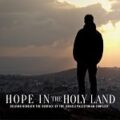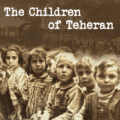The kibbutz, a communal settlement found in Israel, holds a special place in the country’s history and culture. Beyond its collective living and farming practices, the kibbutz offers a distinctive childhood experience for the children who grow up within its close-knit community. In this article, we will explore the fascinating world of child life in a kibbutz, where shared responsibilities, communal values, and a strong sense of belonging shape their formative years.
A key aspect of growing up in a kibbutz is the emphasis on communal living. Children in a kibbutz are raised in an environment where everyone looks out for one another. Shared responsibilities and collective decision-making are central to daily life. From an early age, children are encouraged to contribute to the community by participating in age-appropriate tasks, such as helping with chores, tending to the communal gardens, or taking care of animals. This sense of responsibility fosters a strong work ethic and instills a deep understanding of the value of teamwork.
In a kibbutz, childcare and education are intertwined. Children typically attend communal preschools and schools located within the kibbutz. Educators focus not only on academic development but also on fostering social skills, cooperation, and a strong sense of community. The children learn to navigate the complexities of interpersonal relationships and develop a deep appreciation for diversity and inclusivity.
Growing up in a kibbutz grants children a sense of freedom and independence not often found in traditional family structures. With their peers and a supportive community surrounding them, children have the opportunity to explore and discover their interests and passions. They have access to a wide range of activities, from sports to artistic pursuits, providing them with a well-rounded and diverse upbringing.
Living in close proximity to other families creates an environment where children develop lifelong friendships. The shared experiences of growing up together foster strong bonds among kibbutz children. They forge deep connections with their peers, forming a support system that extends far beyond childhood. This sense of community and belonging provides a nurturing environment that positively impacts their emotional and social development.
Kibbutzim often organize cultural and educational activities for children, exposing them to a variety of experiences. Field trips, workshops, and cultural events are organized within the kibbutz and beyond, enriching their understanding of the world. These opportunities broaden their horizons and help shape their perspectives, fostering a sense of curiosity and a thirst for knowledge.
While the kibbutz upbringing offers many advantages, it also presents unique challenges. The communal lifestyle can sometimes require children to adapt to collective decision-making, compromising personal desires for the greater good. However, this adaptability fosters resilience, empathy, and a strong sense of social responsibility.
Growing up in a kibbutz provides a childhood experience unlike any other. The communal values, shared responsibilities, and nurturing environment shape children into individuals with a deep appreciation for community, cooperation, and social harmony. The bonds forged in childhood extend throughout their lives, creating a lifelong network of support and friendship. The kibbutz system continues to offer a remarkable setting where children can thrive, building a strong foundation for a future guided by a deep sense of unity and collective purpose.
















